Homogenizer Gauges
Homogenizer Gauges Specification
- Outer Size
- 100 mm
- Case
- Stainless Steel
- Sensor Type
- Mechanical
- Measuring Range
- 0 to 1000 Bar
- Glass Size
- 100 mm
- Frequency
- 0 Hz (Mechanical Gauge)
- Thread
- 1/2 BSP
- Material
- Stainless Steel
- Working Presssure
- Up to 1000 Bar
- Seal Material
- Neoprene Rubber
- Grade
- Industrial
- Application
- Homogenizer Machine Pressure Monitoring
About Homogenizer Gauges
Banking on our vast industrial experience, we are involved in manufacturing and supplying of Homogenizer Gauges which are extensively used for measuring the pressure in various industries. Our workforce makes use of premium grade materials and advanced machinery while manufacturing these gauges. Available in different designs and specifications, these Homogenizer Gauges are strictly tested by our quality experts to ensure their flawlessness. Our clients can avail these gauges from us at most feasible price range.
Features
- Accurate result
- Dimensional accuracy
- Requires less maintenance
Industrial-Strength Mechanical Pressure Monitoring
Constructed from premium stainless steel and fitted with a durable neoprene rubber seal, this gauge guarantees long-lasting performance in demanding industrial settings. Its wide measuring range0 to 1000 Barfits the rigorous requirements of homogenizer machine operations. The gauges clear 100 mm dial and glass lens allow for easy reading, facilitating efficient pressure management and safety compliance.
Versatile Installation and Reliable Performance
The gauges 1/2 BSP thread ensures compatibility across a wide variety of homogenizer machines, while its all-stainless steel construction resists corrosion. This mechanical sensor type does not require external power, making it reliable in locations with volatile energy supplies or where maintenance access is limited. With precise readings up to 1000 bar, operators can confidently monitor machine performance and maintain optimal operating conditions.
FAQs of Homogenizer Gauges:
Q: How does a mechanical homogenizer gauge measure pressure in homogenizer machines?
A: A mechanical homogenizer gauge uses a pressure-sensitive mechanism, such as a Bourdon tube, to translate physical pressure into pointer movement on the dial, giving a direct reading of pressure up to 1000 Bar without any electrical components.Q: What is the benefit of using a stainless steel case and parts in these gauges?
A: Stainless steel provides excellent resistance to corrosion and mechanical wear, ensuring reliability and extended service life, especially in high-pressure and industrial environments where chemical exposure is common.Q: When should I replace the neoprene rubber seal in my homogenizer gauge?
A: The seal should be inspected periodically for signs of wear, cracking, or leakage, and replaced during scheduled maintenance or if any pressure loss or fluid seepage is detected to maintain measurement accuracy and safety.Q: Where can I purchase mechanical homogenizer gauges in India?
A: These gauges are available through a diverse network in India, including dealers, distributors, exporters, importers, manufacturers, retailers, suppliers, traders, and wholesalers.Q: What process is involved in installing the homogenizer gauge onto my machine?
A: Installation involves securely threading the gauges 1/2 BSP connector into the corresponding port on the homogenizer, ensuring the neoprene rubber seal is correctly positioned to prevent leaks before tightening and calibrating the gauge as needed.Q: How do I use the mechanical gauge for effective pressure monitoring?
A: Simply observe the dials pointer to monitor the live pressure within the machine, allowing for timely adjustments and enhanced operational safety during homogenization processes.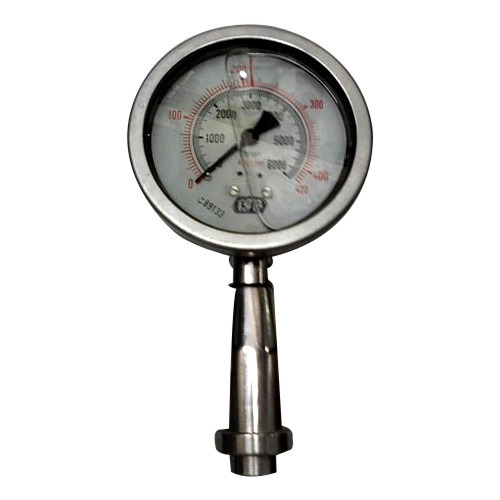

Price:
- 50
- 100
- 200
- 250
- 500
- 1000+
More Products in Vacuum Gauges Category
Digital Vacuum Gauges
Grade : A
Application : Oil Refineries, Chemical Processing, Food And Beverages Industry, Water Engineering, Textile Industry, Marine Engineering, Mechanical Engineering, Petro Chemical Plants, Pharmaceutical Manufacture, Nuclear Power Engineering, Pulp And Paper Industry
Material : NA
Outer Size : NA
Working Presssure : NA
Accuracy : 2 %
Precision Vacuum Gauges
Grade : Industrial Grade
Application : Other, Vacuum Measurement in Industrial Equipment
Material : Stainless Steel / Brass / Phosphor Bronze
Outer Size : 100 mm (4 inches)
Working Presssure : Maximum 1.25 times the full scale
Accuracy : 1% of Full Scale
Tyre Pressure Gauge
Grade : Industrial
Application : Other, Tyre Pressure Measurement for Automobiles
Material : Metal Body with Brass Connection
Outer Size : 63 mm diameter
Working Presssure : Up to 7 Bar
Accuracy : 2% of Full Scale
Differential Gauges
Grade : Industrial Grade
Application : Other, Filter monitoring, Line pressure differential, Clean room monitoring, Hydraulic and Pneumatic systems
Material : SS304/316 wetted parts, Aluminum Case
Outer Size : 110 mm Diameter
Working Presssure : Max 40 bar
Accuracy : 1.6% FSD

 Send Inquiry
Send Inquiry
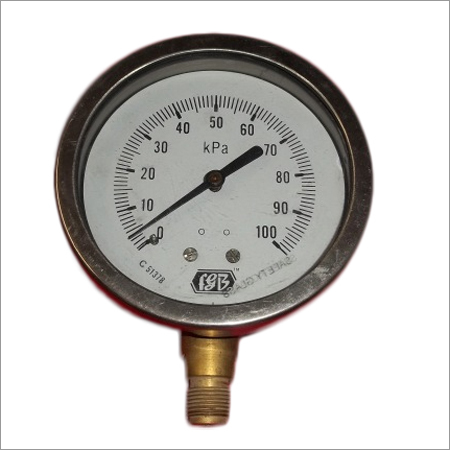
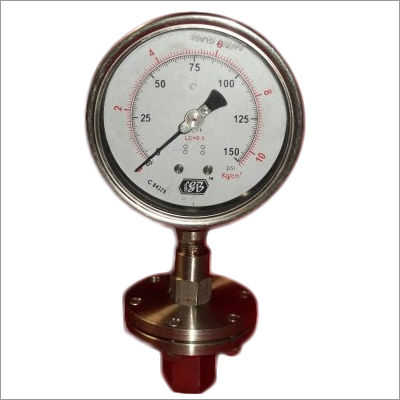
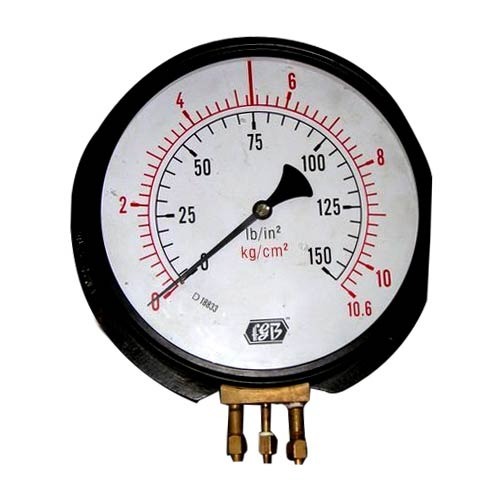
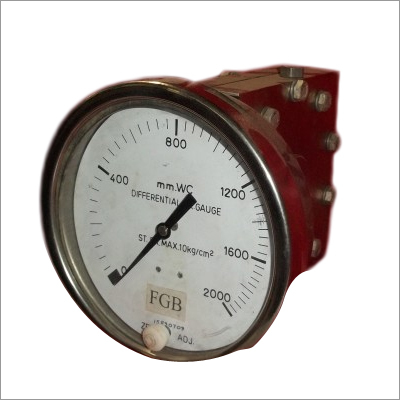


 Send Inquiry
Send Inquiry Send SMS
Send SMS